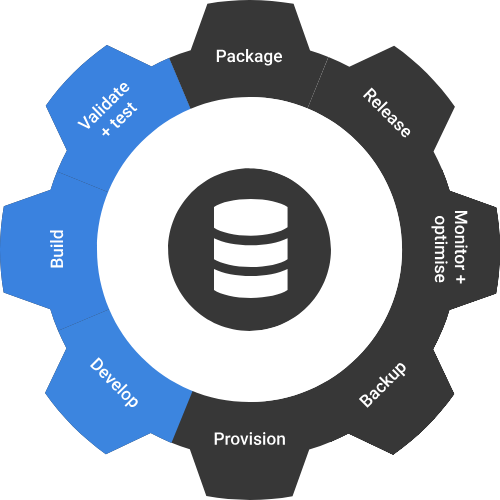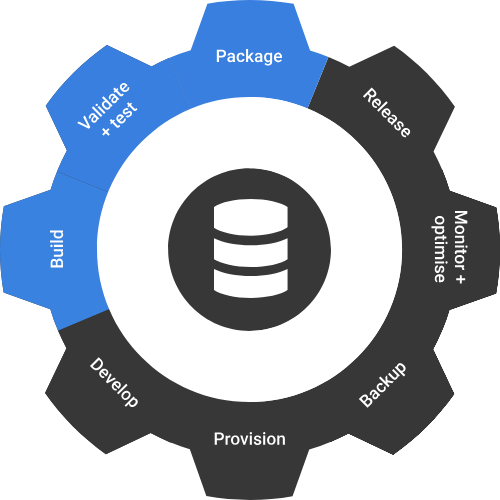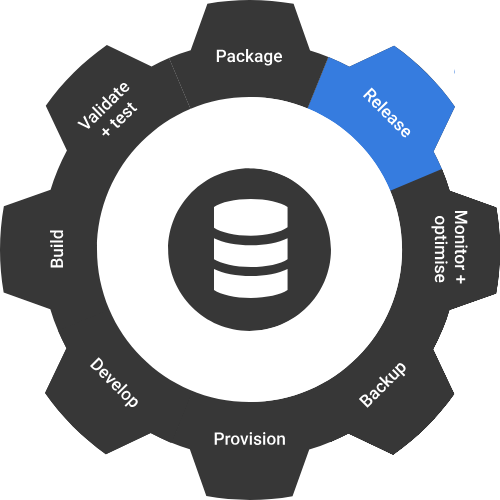Components
Published 24 February 2017
SQL Change Automation consists of 3 components. There are also add-ons to allow you to use SQL Change Automation in third-party continuous integration and release management systems.
1. Visual Studio extension
The SQL Change Automation SSMS and Visual Studio extensions let you:
- easily create migration scripts for database changes
- deploy those migrations to a development database
- validate the migration scripts
- source control the migration scripts so they can be used by team members as well as the build components
See: Installing the Visual Studio extension | Getting started with SQL Change Automation Projects in Visual Studio
2. PowerShell Build components
The SQL Change Automation build components use the migration scripts created by the Visual Studio extension.
The SQL Change Automation build components work with any continuous integration server (eg, VSTS/TFS, TeamCity, Jenkins, Bamboo, etc), and let you:
- build the database alongside an application as part of a continuous integration process
- validate the migration scripts
- run tSQLt tests, integration tests, etc
- create a package used by the release components
See: Installing PowerShell components | Getting started with the SQL Change Automation PowerShell components
3. PowerShell Release components
The SQL Change Automation release components use the packages created by the build components.
The SQL Change Automation release components work with any release server (eg, VSTS/TFS, Octopus Deploy, Bamboo, etc), and let you:
- preview database changes before they are deployed
- automate deployments of database changes, alongside application changes
See: Installing PowerShell components | Getting started with the SQL Change Automation PowerShell components







